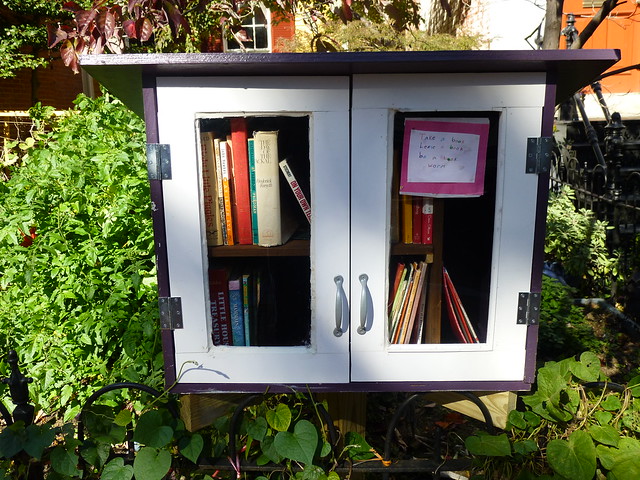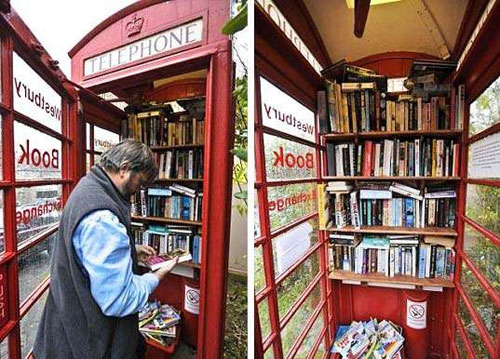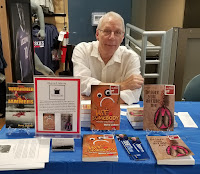 |
| Dog and Denise by candlelight. |
My friend Tom, who lives a somewhat eremitical existence in a rural part of our North Carolina mountains, woke the morning after Tropical Storm Helene to find that the gravel road at the end of his property was blocked by downed trees and bisected by two raging gullies of water. He and his neighbors were cut off from civilization. If they didn’t do something to help themselves, they knew it would be days, possibly weeks, before city workers cut them out.
Tom cobbled together a brigade of can-do folks with chainsaws to get the job done. His A-Team consisted of characters I would hesitate to put in a fictional narrative because they would seem too far-fetched. Tom, a wild-eyed building contractor and the scion of a Texas oil family, was assisted in his endeavors by a puppeteer, a falconer, a nonagenarian bison herder, and a guy everyone on that road calls “the
friendly hermit.” As the men worked, they were kept happily fed by an 80-year-old neighbor who fried up savory helpings of Spam out of her pandemic pantry. You can’t make this stuff up.
My wife and I were safely out of town at a three-day book event when the storm passed through, so I cannot share any anecdotes of those harrowing days and nights. I only know that since chainsaw-slinging puppeteers are in short supply, most of my neighbors closer to our little city of Asheville, North Carolina, were trapped in their homes as tree after tree fell and utilities gave up the ghost, and were forced to wait for help.
Our friends Jimmy and Heather found their college-aged daughter’s car squashed flat in their driveway under a massive tree. A few other trees dropped on their property, none on the house. They were the lucky ones.
Most of the neighbors on my cul de sac were equally lucky. A few trees down here and there, but their homes high, dry, and intact. Inez, the inveterate gardener at the end of the block, lost a beautiful magnolia, which fell toward the road, damaging nothing but itself. When I asked how she was, she said that after hearing how others in the surrounding region had fared, she felt “Lucky, and heartbroken.”
She did not know it, but she was speaking for many of us in Western North Carolina.
Denise and I had been in Charleston, four hours south. We returned three days after the storms to find a massive tree on our roof, and about a dozen trees down on the property, several of which smashed through the wooden privacy fence that keeps our dog from tearing after squirrels in distant yards.
For a few days I walked around measuring these behemoths. The smallest diameter I encountered was 16 inches. The tree removal estimates alone were close to $20,000, before we entertained the notion of repairing the roof, gutters, and fences, replacing the dog’s invisible fence line and the spoiled food in our fridge. In other words, we too were lucky.
We and the older couple next door have since become the de facto rulers of the street, because as soon as Good Samaritans cut the trees blocking their way out, many of our neighbors fled to places rumored to possess electricity, Internet, mobile phone coverage, and copious hot water. I don’t blame them. Some of those neighbors have kids, some are older, and some simply don’t like to be inconvenienced.
For a few nights we roamed our home with flashlights, cooked on the gas stovetop, listened to news on a hand-cranked radio, and went to bed to the sounds of sirens, chainsaws, Chinook helicopters, and humming natural gas generators. Gasoline was scarce, so we walked a few miles everyday to a guardrail near the highway that for some reason had great cell coverage. From that strange spot, we wrote everyone we could think of to assure them that we were okay.
On those cool fall mornings, when the nabe was silent, nature returned. A flock of wild turkeys traipsed through everyone’s yard. Three deer, tails twitching, skipped along the lawn across from us. And a mother bear arrived one afternoon with two cubs to investigate the trash people had left behind in their haste to bug out. For several nights, successive waves of bears feasted while our dog went nuts.
It is a mistake to think, as humans often do, that we are the masters of all we survey. No—we’re just the ones stupid enough to pay for it.
Family and friends insisted that we too consider fleeing for our own safety as soon as we could procure a full tank of gas. We have been offered guest rooms and cottages in Knoxville, Chapel Hill, Brooklyn, Idaho Falls, D.C., and Sleepy Hollow. And much as I would LOVE to spend Halloween in the reaping grounds of the Headless Horseman, we have chosen to stay.
My brother, in particular, took me to task. Denise and I were safely out of town! Why on earth would we return?
Here’s why. We felt compelled to check on the house, to see just how bad the damage was. And we needed to retrieve our dog, who was staying at the home of a trainer who worked at the kennel we normally use. This wonderful person and her family were safely out of harm’s way, not in a flood zone, but it was too much of an imposition to leave the pooch in their care indefinitely. They had a motorcycle dealership on one of the rivers to muck out. They didn’t need the extra hassle of our dog while doing so. (The grounds of the dealership have since become a staging area for helicopter search and rescue operations.)
The kennel, I should mention, had been evacuated two nights before Helene’s arrival, and is now
completely wrecked.
The French Broad River that flows through our mountains is the third oldest on the planet. (Yes, I know that strains credulity.
Look it up.) It is 340 million years old, four-and-a-half-times older than than the Nile.
Pardon my French, but when the old Broad gets angry and swollen, she lashes out. Nearly every business on that stretch of road near the dog kennel was erased. The brewery we’d never had a chance to visit. The artisanal tea company that formulated a brew to celebrate the launch of my wife’s Thanksgiving book. The glass company that installed our shower doors. The plumbing supply company that sold me parts for my various DIY jobs around the house. The legions of antique places. The FedEx store where we’ve shipped editorial projects. The restaurants in the historic village outside the Biltmore Estate that we adored and championed. The one-man auto body shop that repaired the dings I keep putting in my fenders. All gone. Washed from the face of the earth. That’s only
one stretch of road along a
tributary of the French Broad.
The River Arts District, where artists maintained studios and sold to the public, is a moonscape of twisted sheet metal, upended vehicles and trailers, scoured terrain, and toppled trees festooned with fluttering plastic. We used to call this area the RAD, but now the D in that acronym stands for
debris. When we drove down to take a look, I felt numb. Tears sprung to my eyes.
The people who lived and worked here, the ones I know and the ones I don’t, are the legions of the unlucky. Their homes and livelihoods were destroyed, and they are in shock. Rescue workers continue to pull the bodies of humans and livestock from waters in the region.
I could go on. There are tons of these stories, and the list will only grow because as I write this, the news tells me that there are still—three weeks after the storms passed—600 impassable roads in the state. In a mountainous region with challenging terrain, that means people are still trapped, hungry, ill, or even dead in or near their homes, and no one will know until the roads that lead to their doors are rebuilt, or someone helicopters in to check on them. The body count keeps climbing. Power restoration efforts will take time because in so many of these areas, workers must rebuild roads or else hike into an area on foot and hand-dig holes before new electrical poles can be erected and strung.
We are proud of these mountains and their history, but they have a distinct disadvantage when dumped with excess water. On flat terrain, rainwater has a whisper of a chance to seep into the earth. When it lands on slopes, rain doesn’t so much seep as it rushes downhill, seeking the lowest point. This process happens with alarming speed. This simple concept had never occurred to me until it was explained to me by a climate scientist I interviewed when I first moved here twenty years ago. As a species, we should cultivate the habit of shutting up and listening to scientists speak more often.
That’s another reason why we remain in our home. We are safe. We have a roof over our heads. Electricity, Internet, and cell coverage work but remain erratic. As long as I can communicate, I will do so. We were trained as journalists. Stories are important to us. Someone’s got to collect them, and share them with others. I don’t own a chainsaw. I don’t keep an excavator on my property like my pal Tom. But I do what I do. They also serve who sit and write.
Now that utilities are less crappy, and gasoline is easier to come by, we have the luxury of moving on to other chores. Every morning, we get up and make a run to grab some non-potable water with which to flush our toilets. On the drive back home, we roll past a gauntlet of friendly strangers who offer us everything from free drinking water, free MREs, free ice, free cereal, free baby supplies, free bananas. It’s the bananas that kill me. Free bananas—seriously? Bananas are part of the reason we’re in this mess.
Saturday we went to the farmer’s market, where growers sell food that was coaxed from local soil, not shipped in from the tropics. Since this was the first market since the storms, the gathering was about so much more than buying groceries. A lot of hugging, a lot of swapping of stories.
My favorite farmer, the dude who always teases me with the term
paisan, was not there. He, like me, is an Italian American guy from New Jersey. Earlier this spring, I texted him to ask when was the best time to get my meatball starts in the ground. He reminded me to mulch mine deeply with lasagna noodles. He’s got a beautiful sense of humor, and a smile that lights up hearts.
Why wasn’t he there? As soon as I could get back home and in range of our temperamental Wi-Fi, I dug around the web. I learned that Gaelan and Nicole’s farm was largely destroyed by Helene. Her brother-in-law had a
GoFundMe site up to help them rebuild. The photos of their collapsed barn, shredded hoop houses, gullied-out crops, and upended farm equipment were horrifying.
A few days ago, my friend Steve wisely observed that everyone has a small bucket of resiliency that typically serves us in good stead, but it is surprising how quickly that bucket empties. Sitting on my patio Saturday, surrounded by piles of shattered tree limbs, a few feet from my patched roof, I broke down and wept. Can’t even call the guy to say how sorry I am about his farm. He’s out of touch until they erect temporary cell towers in his town, which is about an hour from me.
I turned 60 that weekend, and while I didn’t feel like celebrating, I certainly felt like stewing. I have literally become the old dude who shouts at clouds because they are blocking the tiny solar generator in his driveway.
Because I’m lucky does not mean I am not angry. Angry at climate change deniers. Angry at corporations who refuse to take a temporary hit to their profits to ensure that we live safely on this planet for a few more centuries. Angry at the billion-dollar corporate dickheads who own our severely understaffed local hospital, and whose rapacious greed has invited the scrutiny of our state attorney general and the feds. (This is the same hospital you may have heard about in the news, whose emergency room is so screwed right now that staffers were instructing patients to
“go in buckets” that would later be emptied by nurses. The city’s lack of water means surgeons cannot easily scrub in, so please don’t need surgery, folks…)
I am angry at politicians who keep texting me to offer their thoughts and prayers during my hour of need, to tell me that they are “with me,” only to remind me a sentence later that they’re counting on my vote on November 5th.
I am angry at the jerks who jacked our local postal workers in the early days of the recovery to steal Amazon packages. Angry at the narcissists who so badly needed gasoline that they felt it necessary to threaten their neighbors at gunpoint at the pumps, then—as in one instance—run those poor people over as they drove away.
And let’s face it, I am angry because I could really use water in my damn pipes. In recent years I have become a profligate drinker of water. The cancer treatment I had back in 2022 robbed me of fully functioning salivary glands, so even the slightest physical effort leaves me parched. After a day of hauling wood and buckets of water, I am desperate to guzzle whatever is handy.
Okay, true, I sometimes slake my thirst with beer. But my tipple of choice is
mostly FEMA’s bottled water. I feel increasingly guilty about the rising tide of plastic in my recycling bin.
My attorney neighbor, who grew up here, tells me that the mayor and city council have fought for seventy-five years about doing something about our rickety and woefully outdated water treatment facility. Successive administrations kept passing the buck on upgrades, because no one had the balls to come clean about the costs and probable property tax hikes, nor did they have the political will to inconvenience citizens and tourists with what could be a months-long process of interruptions at the tap. Well, guess what? The plant flooded, must now be rebuilt from scratch, and our much-vaunted tourism economy is destroyed. Great work, guys.
As the lady says, I am lucky and heartbroken. I have dry mouth and I must scream.
* * *Apologies for the long post, and the paucity of photos.
I can only share my experience, but I’d remind visitors here that these storms impacted much of the American southeast. If you are moved to donate on the national level, the
Red Cross and the
Salvation Army are good options.
If you want to help my city specifically, two good organizations are
Manna Food Bank and
BeLoved Asheville.
Since we’re a literary blog, I’m posting links to bookstores in the region. If you’re contemplating buying books online, I’m sure that they would appreciate your business. (Before you buy, check websites to see if they are able to fulfill orders.)
Malaprop’s - Asheville, NC
Firestorm Co-op - Asheville, NC
Bagatelle Books - Asheville, NC
Plott Hound Books - Burnsville, NC
Blue Moon Books - Canton, NC
Blue Ridge Books - Waynesville, NC
Sassafrass on Sutton - Black Mountain, NC
Sassafrass on Main - Waynesville, NC
City Lights Bookstore - Sylva, NC
Little Switzerland Books & Beans - Little Switzerland, NC
Two wonderful local sources for used and rare books are:
Biblio - Asheville, NCIrving Book Company - Asheville, NCHopefully, I’ll see you in three weeks!
Joe
josephdagnese.com























